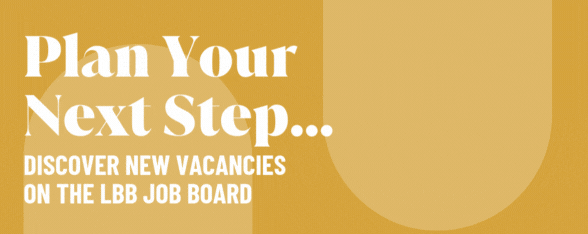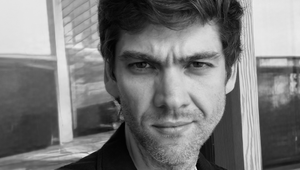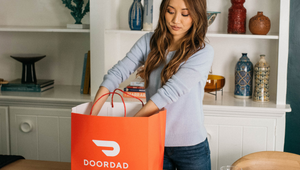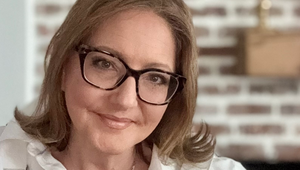
Meet Your Makers: Why No 2 Jobs Are the Same with Mila Davis

Mila Davis is executive producer at Uppercut. She began her entertainment career at TBWA\Chiat\Day, working her way up from an entry-level position to become a producer. She left Chiat to go work on Lexus at Team One Advertising. Shortly after, she was given the opportunity to return to Chiat to work on PlayStation and Apple. She worked there for many years as an executive producer on Pepsi, adidas, and other brands. She was always interested in the post-production process, which led her to become an executive producer/managing director at Stitch Editing. She's collaborated with clients such as Amazon, EA, Activision, Facebook, Google, Cuervo, Honda, Hyundai, Nike, Microsoft, and Samsung.
LBB> What first attracted you to production - and has it been an industry you've always worked on or did you come to it from another area?
Mila> I was involved in drama classes at an early age, and when I realised I wasn't good enough to get the leads, I became more interested in being behind the scenes. In college, I majored in film and worked for accountants part-time because I was always good with numbers. I knew I didn't want to do accounting long-term, but it landed me my first advertising job. Right out of college, I interviewed at Chiat/Day. Getting into their production department was very hard, so I was hired in an entry-level accounting position. As soon as I got in, I became friendly with people in the production department and moved over as soon as possible!
LBB> What was your first role in the production world and how did this experience influence how you think about production and how you grew your career?
Mila> When I got into the production department at Chiat, I started as a PA and then moved up to become a production coordinator, assistant producer, and then producer. I look back at those years fondly. We worked around the clock but also had a lot of fun and learned a lot.
LBB> How did you learn to be a producer?
Mila> I started as a PA and worked my way up. I was producing before I even had the producer title, and once I did, I was given small jobs to begin with. I learned a lot from assisting and watching my mentors, Richard O'Neill and Elaine Hinton, plus other producers. There was very much a sink-or-swim mentality back then. There wasn't a training guide -- you learned on the job. Every job had its challenges, and every job I worked on, I learned something new. Technology has changed over the years, making some things faster and more efficient, but on the whole, the producer role has mostly stayed the same. A producer still needs to manage people, budgets, and schedules and find the best talent for the job to deliver the best result.
LBB> Looking back to the beginning of your career, can you tell us about a production you were involved in where you really had to dig deep and that really helped you to grow as a producer?
Mila> I had to dig deep on so many jobs, but one that sticks out to me was when I had to edit and finish 38 tech spots in one weekend. I had to keep everyone calm, fed, and focused as we powered through. We didn't sleep for 48 hours; people took cat naps when they could. The experience helped me grow as an individual and a producer of a large team. I also learned from that experience that everyone's ideas should be considered, no matter their experience. I ignored an idea from a lower-level person on the job because it wasn't my idea, and eventually realised that their idea was actually the best.
LBB> A good producer should be able to produce for any medium, from film to events to digital experience. Do you agree or disagree with this statement? Why/why not?
Mila> I agree, but there are different skill sets needed for different mediums. Some things are the same across all mediums, but short-form vs. long-form productions are approached differently. It is easier to produce short-form because it is usually completed sooner. Long-form pieces might have the same budget as a couple of commercials to be stretched over a year, assuming it is not a big blockbuster. You have to watch your dollars closely.
LBB> What's your favourite thing about production and why?
Mila> No two jobs are the same. Every job brings something different to the table. I love seeing an idea go from a thought to a reality. I love people and entertainment. Production combines both of those things.
LBB> How has production changed since you started your career?
Mila> A ton. We used to have a lot of time and money. Now everyone wants more for less and twice as fast. Also, agencies used to have a lot more creative control. Clients seem to have all the power now.
LBB> And what has stayed the same?
Mila> It is still filled with great, creative, smart people who generally want to do the best work possible.
LBB> What do you think is the key to being an effective producer - and is it something that's innate or something that can be learned?
Mila> You need to be a people person, be organised, and be flexible. There are a lot of curve balls thrown at you from all sides. You need to know which balls to catch and which to let hit the ground. You can't take things personally, or you will never last. Also, relationships mean everything.
LBB> Which production project from across your career are you most proud of and why?
Mila> There have been a lot. Some really stood out and were highly awarded, like a nostalgic Pepsi 'Refresh Anthem' commercial with Bob Dylan for the Super Bowl and adidas 'All in for My Girls' spot. On the post side, Under Armour, Google Pixel, Panama Papers, and The Game Changers documentary.
There have also been some other projects that I worked on which didn't get the same public recognition but hopefully helped make the world a better place, such as ‘Sisters of Emoja.’ The film was about a group of abused women in Africa who came together to develop a community safe for women and children. I got to work with a group that helped bring fresh water to the community. I love working on projects that give back.
LBB> And in terms of recent work, which projects have you found to be particularly exciting or have presented particularly interesting production challenges?
Mila> There have been a few standout productions since I started with Uppercut earlier this year, such as Mountain Dew with Sean Fazende, Impossible Foods with Micah Scarpelli and Ben McCambridge, Dave's Hot Chicken with David Checel, and Plenty with Gabriel Britz. They have all had budgetary challenges but have been creatively interesting with fun, talented people.
LBB> Producers always have the best stories. What's the hairiest / most insane situation you've found yourself in and how did you work your way out of it?
Mila> I've had a bunch of crazy times. I once went to Sydney, Australia, to shoot one shot for Nissan. The one car that was available to shoot travelled all the way from Perth to Sydney. I thought it was going to be on a transport car. To my surprise, they drove it across the country, and on the way, it got hit by a kangaroo. One side of the vehicle had a lot of damage, so we could only shoot the other side. I also produced an Adidas commercial in 4 countries - Nigeria, Jordan, England, and Brazil, which came with all sorts of real-life challenges. The agency wouldn't allow the team to travel to Nigeria for safety reasons. In Jordan, we had to sit back as females and let the men speak for us. In Brazil, our last shot was flooded by an insane rainstorm. Fortunately, they all ended up well.
Another time, I had to leave a Nissan Pathfinder at the top of Whistler Mountain for four months because we were shooting in a completely white-out blizzard. We couldn't go back until the snow melted.
On the post side, I have had assistants and vault people completely wipe drives of footage before they were backed up, which has given me a heart attack each time. Fortunately, there were other backups of the footage elsewhere.
LBB> What are your personal ambitions or aspirations as a producer?
Mila> To always do the best job possible, deliver a good end result, make everyone happy, and want to work together again.
LBB> As a producer your brain must have a neverending "to do" list. How do you switch off? What do you do to relax?
Mila> Sometimes it is hard to turn off. My best ways to relax are exercising or being out in nature. I love to hike, ski, swim, etc, but I also like to binge-watch good tv shows and eat good food. I am really looking forward to travelling again now that the pandemic is over.
LBB> Producers are problem solvers. What personally fuels your curiosity and drive?
Mila> I'm a Virgo, so I'm better when I'm busy. I don't do well when I have too much time on my hands. The world and people around me fuel my curiosity and drive. I am interested in world events, people, my kids, animals, theatre, films, and the planet. They drive me to do better.
LBB> What advice would you give to people who are interested in becoming a producer?
Mila> The best advice I can give is what someone else told me when I was coming up: People don't want to hear the answer "no." They want to hear, "Let me get back to you with some options." I received another piece of advice early on in my career when I excitedly presented a new edit to Lee Clow, and I told him he would love it. He looked at me closely, blinked, and said, "It is always better to underpromise and overdeliver than the other way around." I have repeated that to a lot of people throughout the years.
LBB> From your experience what are the ingredients for a successful production?
Mila> Producers must be flexible, think outside the box, and find solutions. It also helps to be organised and good with numbers. Being on budget and on schedule is also super important.
LBB> What's the key to a successful production-client relationship?
Mila> Trust, dependability and reliability. Also being a kind caring person helps.
You build trust by being honest – you have to mean what you say. Clients need to know you have their back, and they can rely on you. It is important to build a relationship so clients want to come back. Micah Scarpelli, Uppercut's Founder, acknowledges and respects this part of the business which is why Uppercut has so many great relationships.
LBB> Producers are naturally hands on - they have to be. How do you balance that in the more managerial role of an EP?
Mila> I still produce some jobs to keep my skill set up. I feel like you get to know your team and the clients better when you are in the trenches with them. But, when I am not producing, it is important to trust the people working for me. I don't like micromanaging, but I like communicating with my team.
















